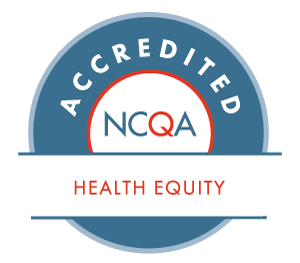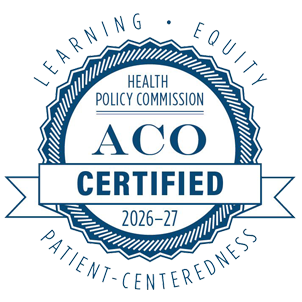FQHC Telehealth Consortium Reports its Members have Conducted more than One Million Telemedicine Visits in Massachusetts since March of 2020
Consortium Passes Halfway Mark of a $12 Million Campaign to Develop Sustainable and Equitable Telehealth Capacity in the Commonwealth
Boston, MA August 24, 2021 – The Massachusetts FQHC (Federally Qualified Health Center) Telehealth Consortium today announced that its 35 community health center members have conducted more than one million telemedicine visits since the start of the pandemic in March of 2020. This achievement comes at the same time the Consortium has passed the halfway mark of its Phase II $12 million fundraising goal – thanks to a major grant from the Gordon and Betty Moore Foundation – to attain sustainable telehealth capacity at health centers and address health disparities in the communities served by them.
Consortium data measuring telehealth use between May 2020 and May 2021 show that telemedicine visits have provided safe and convenient access to primary care for communities of color, which have been disproportionately impacted by the pandemic. Of the 767, 234 Massachusetts health center patients who accessed primary care via telemedicine visits during that year-long period, more than 52% were white, nearly 21% were Black/African American, more than 6% identified as more than one race, more than 5% were Asian/Pacific Islander, and 1% were Native American. Of those identified by ethnicity, nearly 31% were Latinx/Hispanic.
According to the data, the same held true for behavioral health care services. Of the total number of patients taking part in behavioral health telehealth visits during the same one-year period, nearly 56% were white, more than 23% were Black/African American, more than 5% were of more than one race, 4.65% were Asian/Pacific islander, and less than 1% were Native American. By ethnicity, 31% again identified as Latinx/Hispanic.
“While telehealth played an essential role in maintaining continuity of care throughout the pandemic, our health centers see its continued popularity among low-income communities and communities of color, even as in-person visits are now available,” said Christina Severin, President and CEO of C3. “As we pass one million telemedicine visits, the numbers validate what we’ve seen: telehealth provides opportunities for increased access to care and diminishes health inequities faced by Medicaid patients as a result of institutionalized racism in our health care system. We thank our donors who are supporting our efforts in addressing this injustice.”
Phase II of the Consortium’s campaign is focused on ensuring that FQHCs have what they need to fully develop, deploy, sustain, and integrate telehealth modalities into primary and behavioral care, while also addressing the digital divide in their communities. This includes providing better access to broadband and remote patient monitoring equipment, increased digital literacy training, peer learning, outreach in communities that health centers serve, and online dissemination of best practices.
“The digital divide disparately impacts poor communities and communities of color,” said Michael Curry, President & CEO of the Massachusetts League of Community Health Centers. “Access to broadband and other technology is a social determinant of health that must be prioritized in order to avoid the deepening of existing racial health inequities. We will work to focus policymakers on this emerging issue and champion solutions to meet this basic need for everyone who lives in the Commonwealth – and beyond.”
Phase II of the campaign launched in the fall of 2020 with a, $1,040,000 from an anonymous donor to create skilled bandwidth at nine pilot sites required to integrate advanced, durable, and mature telehealth capabilities into member FQHCs. Another $3.1 million grant awarded by the FCC in January as part of the FCC Connected Care Pilot Program is providing equipment and hot spots for patient broadband access. The grant announced today from the Gordon and Betty Moore Foundation ($878,000) is designed to increase the number of patients with controlled hypertension, particularly for African American/Black patients, and to test the additional value of Telehealth Navigators and clinical intervention over federal funding of Remote Patient Monitoring.
The Consortium is a partnership of Community Care Cooperative (C3), the Accountable Care Organization (ACO) that advances community-based care for MassHealth members, and the Massachusetts League of Community Health Centers, the state-based association of health centers.
Community Care Cooperative (C3) is a 501(c)(3) Accountable Care Organization (ACO) that leverages the proven best practices of ACOs throughout the country and is the only ACO in Massachusetts founded and governed by Federally Qualified Health Centers (FQHC) and exclusively focused on advancing integrated and coordinated community-based care for MassHealth members. C3 works with its 18 member FQHCs to strengthen health centers across the state, and continued growth enables C3 to better serve MassHealth members across the Commonwealth. To view a list of C3 health centers, click here.
The Massachusetts League of Community Health Centers (the League) is a 501(c)(3) membership organization supporting and representing the Commonwealth’s 52 community health centers, which offer primary and preventive care to more than one million residents. The League serves as an information resource on community-based primary care to policymakers, opinion leaders, and the media. It provides a wide range of technical assistance to its health center members, including advocacy on health policy issues, support for workforce development, clinical care and technology initiatives, and guidance to state leaders and community-based organizations seeking to open health centers.
The Gordon and Betty Moore Foundation fosters path-breaking scientific discovery, environmental conservation, patient care improvements and preservation of the special character of the Bay Area. Visit Moore.org or follow @MooreFound.





